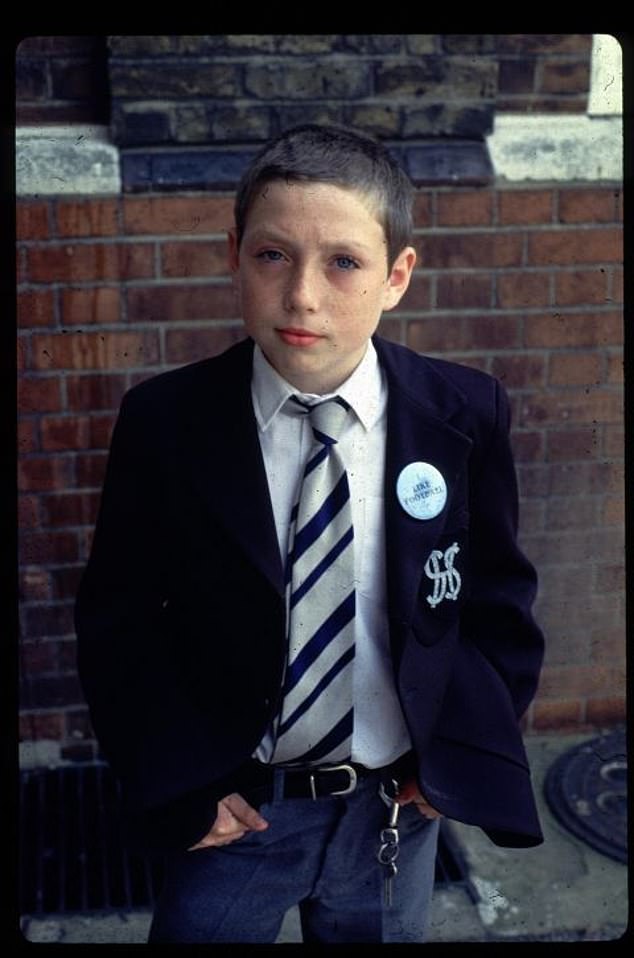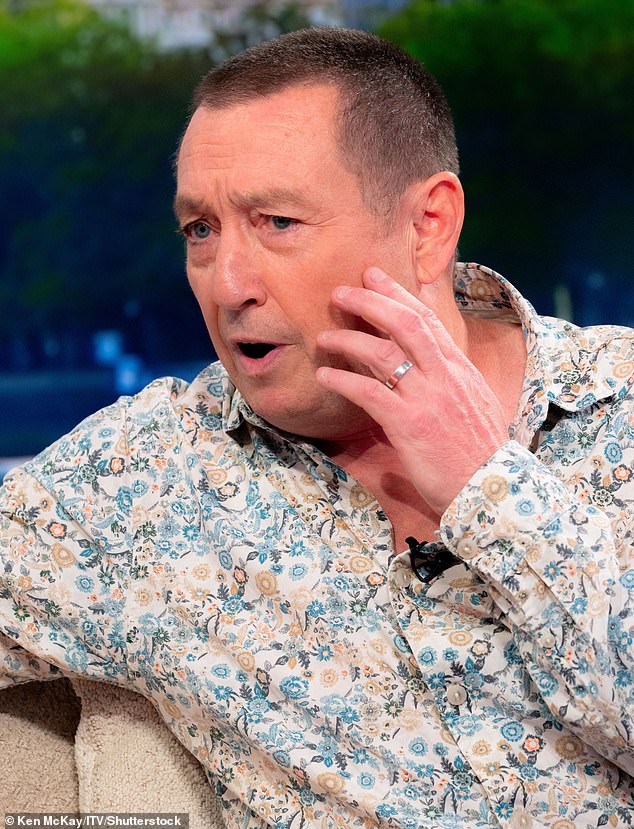Grange Hill’s Zammo McGuire star Lee Macdonald opened up about how he was left shaken by his recent cancer scare during an appearance on Monday’s episode of Good Morning Britain.
The actor – who played the beloved character between 1982 and 1987 on the BBC show – revealed his ‘really common’ symptom that many consider harmless and issued a stern warning to fans while chatting with hosts Susanna Reid, 54, and Richard Madeley, 69.
‘Melanoma is a type of skin cancer that can spread to other areas of the body,’ according to the NHS. Non-melanoma is ‘more common and usually less serious’.
Talking on GMB, Lee said: ‘I had a scare a year ago, which was found to be non-cancerous.
‘O2 are now doing a campaign for skin cancer and awareness, and on the back of that, I booked an appointment for the doctors, I got a little rash there [pointed at his cheek] and it turns out it’s a keratosis, which is a pre-cancerous spot.
‘So I’m going to have to get it burnt out.’

Grange Hill’s Zammo McGuire star Lee Macdonald opened up about how he was left shaken by his recent cancer scare during an appearance on Monday’s episode of Good Morning Britain (pictured)

The actor revealed his ‘really common’ symptom that many consider harmless and issued a stern warning to fans while chatting with hosts Susanna Reid, 54, and Richard Madeley, 69 (pictured)

The star played the beloved character Zammo McGuire between 1982 and 1987 on the BBC show (pictured)
He added: ‘It could turn cancerous. It was just off the back of going and getting it checked out.
‘I think we really need to concentrate on putting skincare on and looking at blemishes on your face. Go and get them checked out.’
Susanna pointed out that skin cancer is something that the star is aware of because it happened to his dad.
Lee explained: ‘My dad was a driver, and for years he would sit with his arm out the window and my mum would go about his arm saying it’s getting burnt all the time.
‘Later in life he had skin cancer cut out from that arm.’
Richard went on point out that back in the day Lee used to use sunbeds, and he thinks that contributed to his diagnosis.
Lee said: ‘Before I went to nightclubs years ago, I would lay on sun bed for an hour a week. That was from… I’d do a Tuesday and a Thursday from 17, up until I was about 26.
‘That’s what the doctor said it is.

Lee told viewers: ‘I think we really need to concentrate on putting skincare on and looking at blemishes on your face. Go and get them checked out’
‘It’s probably the sunbeds, rather than the sun, because I don’t go out in the sun that much because of being aware of the risks.’
The actor went on to confess that he goes fishing with his son every Sunday and he makes sure that he’s wearing sun cream.
Richard asked: ‘Even if it’s cloudy?’
‘Yeah, funnily enough, he got told off by his step-mum because he went home burnt and it wasn’t even that sunny,’ Lee said.
‘But the rays were coming through! So cover up at all times.’
It comes after Lee spoke out being diagnosed with skin cancer on X, formerly known as Twitter, back in June 2024.
He said: ‘Went to the doctors today to check an unusual spot on my face! Doctor says it’s cancer!
‘As we older please keep an eye on anything unusual and hopefully get it looked at early!!! Booked in to get it sorted over the next couple of days!’
During the interview, Susanna also asked about a possible Grange Hill reunion.
Lee said: ‘There’s been a few whispers in the background, but it’s still in the background.
‘But I’d definitely be up for that! Absolutely.’
Lee has also starred in various other TV shows over the years.
He has landed roles in the likes of Birds of a Feather, The Bill, EastEnders and Anna and the Dead.
Good Morning Britain airs weekdays from 6am on ITV1 and is available to stream on ITVX.












